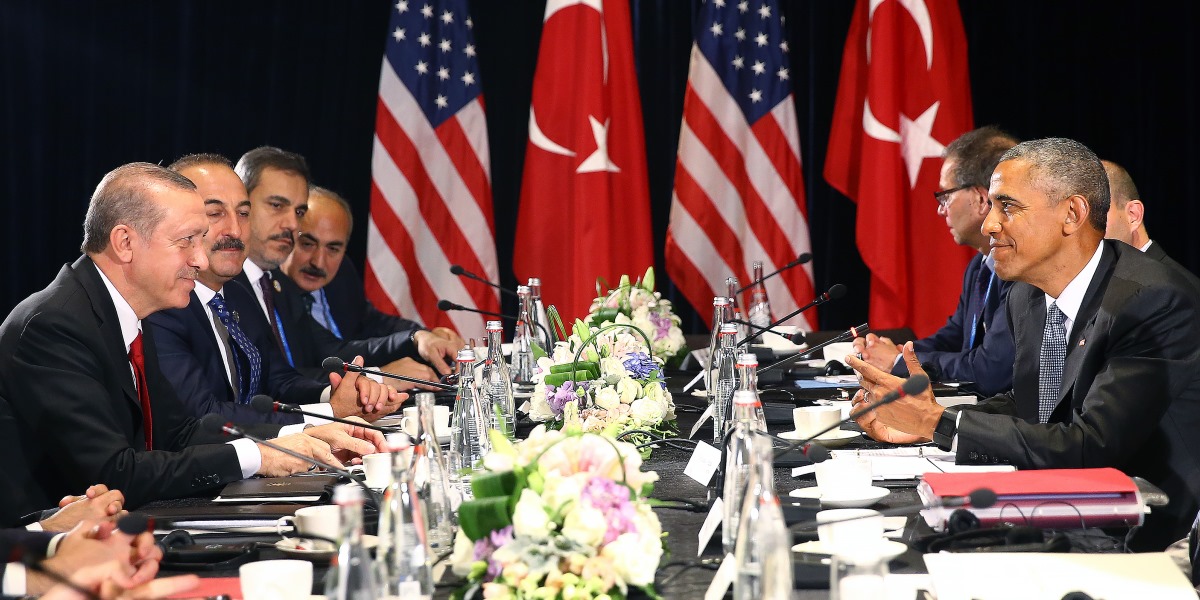The meeting that took place between President Recep Tayyip Erdoğan and U.S. President Barack Obama at the G20 summit in China on Sunday was the last one. The two leaders met for the first time immediately after Obama's election as president. Turkey was one of the first countries that Obama visited after the inauguration of his presidency. Then President Obama suggested the concept of "model partnership" to explain the future prospect of the bilateral relations. Since then, relations between the two countries have suffered significant setbacks due to the major divergence of opinions in regard to regional developments.
When Turkey tried to resolve the Iranian nuclear crises through the Tehran declaration, the U.S. immediately objected to this effort and did not consider this attempt as a contribution to the peaceful resolution of disputes in the region. However, the U.S. resolved this crisis almost five years after the Turkish attempt, which was welcomed by Turkey. Another major crisis was in regard to the military coup in Egypt. Although both countries supported the democratic revolution of 2011, two years after this revolution when a counter revolutionary move took place as a result of the military intervention in politics, their policies significantly diverged. Turkey stood behind the democratically elected government of Egypt and denounced the massacres of the protesters on the streets of Egypt, whereas the U.S. kept silent and called the situation a "restoration of democracy" by the military. Another major crisis took place as a result of disagreements over Syria. The disconnect in regards to the Syria policy deteriorated when the U.S. administration followed an ambiguous path. As a result of all of these disagreements, relations between the two countries faced significant challenges. In what was possibly the last meeting between the two leaders before the end of Obama's tenure was an attempt to handle these challenges. However, this meeting can also be an indicator for the next administration about the sensitivities and expectations of Turkey concerning Turkish-American relations.
First of all, it was important that both leaders emphasize the "special relationship" between the two countries. Being strong members of NATO and allies in the coalition to fight against DAESH are strong bonds for that "special relationship." Thus, the security and strategic dimension will continue to be the most significant aspect of that relation
ship and both sides seem to agree on this. Secondly, Turkish sensitivity in regard to the People's Protection Units (YPG) needs to be understood by the U.S. After the meeting, President Erdoğan emphasized this issue in detail. He said there should be no double standards in regard to terrorism. Thus, artificial distinctions and preferential treatment for some terror groups for different reasons are unacceptable for Turkey. In addition, President Erdoğan also emphasized that Turkey will not tolerate a terror corridor along its border. Geopolitically, no country should tolerate such an unacceptable situation and Turkey will not agree to it either. Thus, the ambitions of the YPG need to be contained, controlled and eliminated. Finally, the investigation of Gülen and Turkey's request must be handled seriously by the U.S. administration. Erdoğan said the relevant ministers would visit the U.S. to work on this issue and demonstrate his commitment about this issue. In all of these issues, one important fact is that Turkey wants a serious step forward and action that will play an important role in the re-establishment of trust between the two countries.
[Daily Sabah, September 5, 2016]







